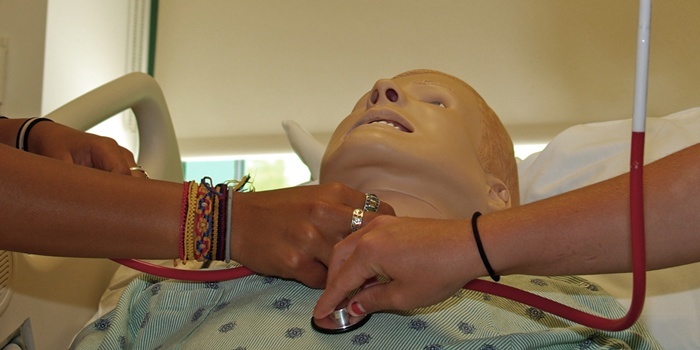Over half the young people in the UK would not know what to do if somebody collapsed in the street, a survey published today shows.
The results have prompted a national charity to call on all local authorities in Scotland to make learning to save a life part of the school curriculum.
British Heart Foundation (BHF) Scotland is banging on an open door in Tayside and Fife where hundreds of school children are taught the skills every year.
The charity says it takes just two hours to learn the skills that are as crucial as learning to read and write. It wants to ensure all Scottish secondary school pupils are taught Emergency Life Support (ELS) skills.
The survey found three quarters (73%) of young people want to be able to help but 60% would not know what to do if someone collapsed in the street.
It also revealed overwhelming support from both teachers and parents for learning ELS.
Ben McKendrick, senior policy and public affairs manager at BHF Scotland, said, “Every local authority in Scotland needs to recognise that incorporating ELS training as part of the Curriculum for Excellence will save lives by gifting young people the skills to act in an emergency.
“Make no mistake, carrying out this vital training in the classroom would empower thousands of children right across Scotland to make a difference in their communities by helping others when they need it most.”
ELS skills include cardiopulmonary resuscitation (CPR), which can help someone who has had a cardiac arrest, and how to deal with an unconscious person, serious bleeding, choking and heart attacks.
In the UK, 30,000 people each year suffer a cardiac arrest outside of hospital and nearly half of these are witnessed by members of the public. Less than one in 10 survive to be discharged from hospital.
With each minute that passes before defibrillation, the chances of survival are reduced by about 10%.
Dr Andrew Lockey, from Resuscitation Council UK, said, “A 10-minute delay between suffering a cardiac arrest and using a defibrillator could be the difference between life and death.”
In Tayside the HeartStart programme delivers training in a number of schools across the region, with both teachers and pupils learning the skills to save a life.
Bryan Kirkaldy, education head of service at Fife Council, said, “As a service we think this is very worthwhile and most of our high schools offer the Heartstart Award to their pupils. Last year 309 Fife pupils achieved the award.”
Perth and Kinross Council’s lifelong learning convener Councillor Liz Grant said, “Basic life-saving training is available to Primary 7 pupils in Perth and Kinross as part of the holistic health programme in schools which forms a core component of the curriculum.
“Since the start of the current academic year 43 of our primary schools have already provided this valuable training to youngsters.”
Image used under Creative Commons licence courtesy of Flickr user anolobb.
